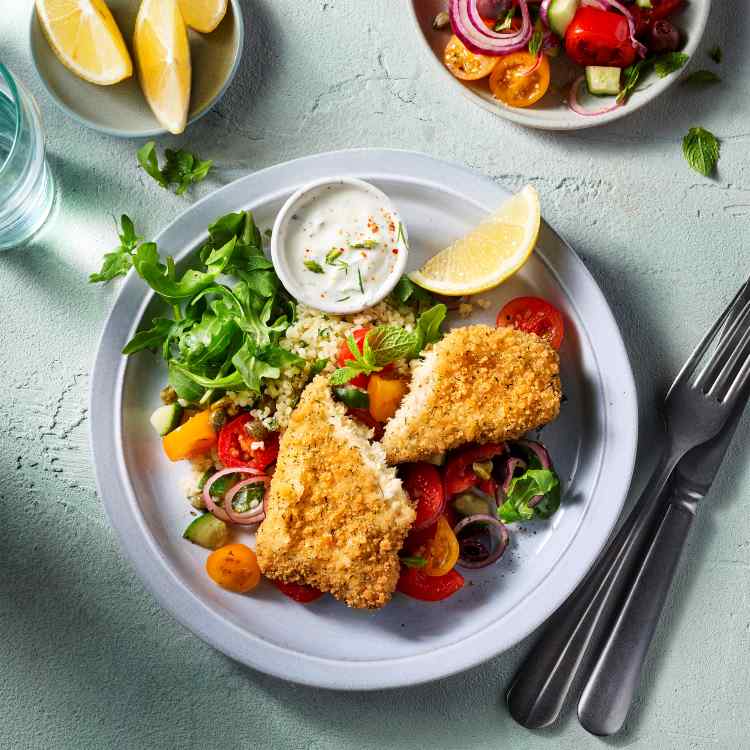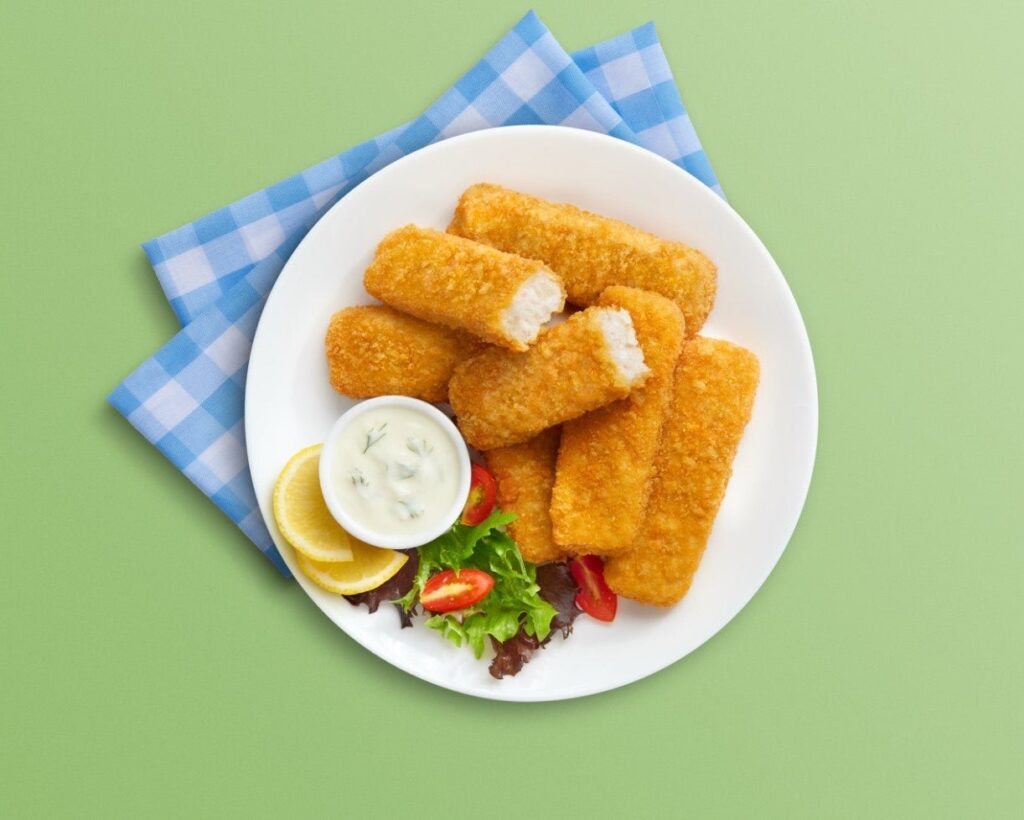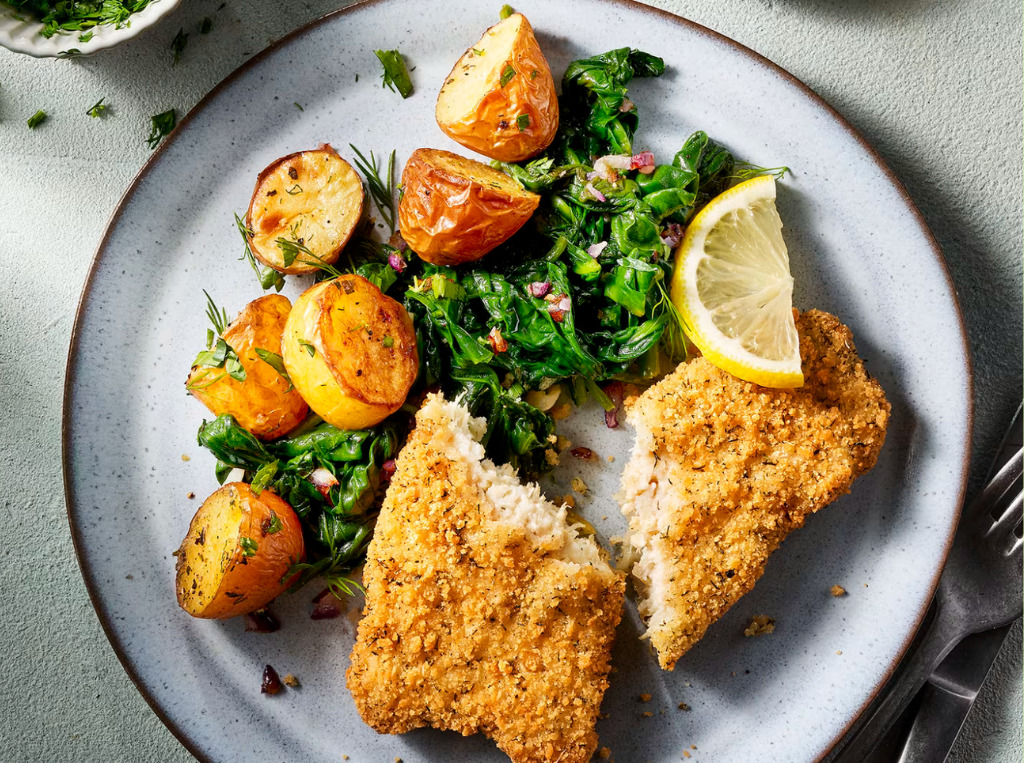4 Mins Read
Nestlé has announced the launch of three new vegan white fish SKUs in Europe and Asia, as it becomes the latest brand to release a plant-based seafood product to cater to the growing demand for seafood and sustainable proteins.
Nestlé will debut marine-style crispy fillets and nuggets in Europe under its Garden Gourmet brand, which are made with wheat and pea protein. The products will be available online and in-store in European countries including Germany, Spain, Italy, Austria, Poland, the Czech Republic and Slovakia. This follows the company’s launch of crispy fish-free fingers (made from soy and wheat) under its Harvest Gourmet brand in Malaysia and Singapore.
“These new fish alternatives are the result of our deep expertise in plant-based proteins and our strong commitment to continue delivering exciting innovations that meet consumers’ expectations,” said Torsten Pohl, global food R&D head at Nestlé. “During consumer testing, our products received high praise for the great taste and texture that is close to white fish.”
Honing in on health and Nutri-score labels

Pohl added that the products “come with strong nutritional credentials, making them competitive in the marketplace”. It’s a reference to consumers’ increased focus on health in their food choices post-pandemic. Nestlé’s announcement makes a point to highlight the nutritional aspects of the new products, highlighting the high protein and low saturated fat content, as well as the fact that they’re rich in fibre.
The company points out that the products in Europe have an A Nutri-score rating, which will be reflected on-pack in the countries that use this labelling system (France, Germany and Spain). These labels have a definite impact on consumers. A French study of 1,201 adolescents aged 11-17 last year revealed that 54% had already been impacted by Nutri-Score labels during food purchases, for example.
Health is a growing driver of consumers’ food choices. Last year, an 8,000-person McKinsey survey covering the US, UK, France and Germany revealed that between 37-52% of people have cut their meat consumption in the last year out of health concerns. Similarly, another 2022 survey of 3,700 respondents in seven countries showed having a healthier diet is the primary motivator for 75% of consumers to begin consuming alternative proteins.
It’s a focus mirrored by other recent plant-based meat launches and marketing campaigns too. US vegan giant Beyond Meat, for example, is spotlighting health on its latest TV ad, honing in on the heart-healthy attributes of its steak alternative. Similarly, in the UK, plant-based leader THIS is also putting nutrition at the forefront of its first TV commercial. In Spain, Heura is doing the same with its new alternative to York-style ham.
Adding to a burgeoning category

The fact that Nestlé – a giant of the food industry – is launching vegan seafood is a marker for things to come for the niche. The plant-based seafood category has seen a flurry of developments this year on the back of encouraging sales growth. According to the Good Food Institute, plant-based meat unit sales dropped by 8%, but vegan seafood saw a 40% year-on-year growth in pound sales last year.
Startups that raised funding include Konscious Foods and Hooked Foods, and two European brands received a €1.5M grant to create 3D-printed mycoprotein to replace seafood, which debuted in September. Meanwhile, eight months after securing vegan seafood brand Good Catch, Wicked Kitchen acquired alt-seafood startup Current Foods in May,
Other product launches include South Korean startup Unlimeat‘s upcycled vegan tuna, Singapore-based HAPPIEE‘s vegan shrimp and squid in the UK, and Canadian brand Seed to Surf‘s plant-based whole-food white fish and snow crab. As of 2021, there were already at least 90 companies working with plant-based seafood.
Along with Nestlé’s Garden Gourmet and Harvest Gourmet SKU expansion, these new products serve an increasing demand for seafood, which is expected to grow by 14% from 2020-30. But this ballooning demand has led to higher greenhouse gas emissions, while the heavy fuel use by ocean fishery vessels contributes to the climate crisis. Overfishing operations receive $22B in capacity-enhancing subsidies every year, a figure the UN special envoy Peter Thomson has called “madness”.
Speaking to Green Queen last year, Lily Ng, owner of US vegan seafood company Lily’s Vegan Pantry, said: “Overfishing disrupts the food chain. And when populations are diminished, other species will overpopulate, destroying biodiversity and making changes to the entire ecosystem. In the end, our consumption of fish still destroys our planet.” The 2021 documentary Seaspiracy details the endemic issues attached to this sector.
“People continue to seek out plant-based options for their favourite dishes,” said Massimo Zucchero, global category lead for plant-based meals at Nestlé. “These new alternatives… are tasty, nutritious and can also help to reduce overfishing and protect the biodiversity of our oceans.”




